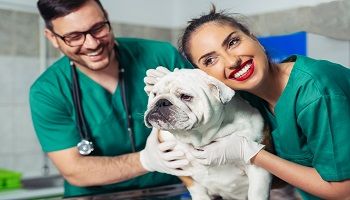Now is the Time to Celebrate RVTs!
RVTs are valuable members of the veterinary team, supporting veterinarians in endless ways such as meeting with clients to discuss pet health, nutrition, and behavior issues; providing pre and post operative care; assisting in surgery; offering intensive care to the most critical patients and so on. They are the glue that holds veterinary practices together!
Registered Veterinary Technologists and Technicians of Canada (RVTTC) will be celebrating RVTs throughout the month of October. along with BCVTA, ABVTA, SAVT, MVTA, OAVT, EVTA, and ATSAQ. This year’s theme, “Power your own career!” aims to showcase the many fields of veterinary medicine that RVTs may pursue.
RVTs are formally educated in several areas within veterinary medicine. From anesthesia to dentistry; lab animal research to industry sales; equine to avian and exotics; nutrition to radiology; large animal to shelter medicine, RVTs use their knowledge, expertise, and passion to help provide animals with the highest quality of healthcare.
Posters available from the RVTTC say it best:
RVTs ARE PASSIONATE
Small animal RVTs have a passion for their job, to give a voice to those who don’t have one,
and are committed to offering the best possible care for companion animals.
For these frontline heroes, going above and beyond is just par for the course.
RVTs ARE ESSENTIAL
Large animal RVTs meet the call every day and are essential to the health and well-being of
production animals, helping to ensure herd health and food safety. This includes:
• Nutrition consulting
• Herd health monitoring assistance • Vaccinations
• Pregnancy checks
• Surgical Assistance
• Udder health
• Disease monitoring
RVTs ARE RESILIENT
RVTs working as industry sales representatives are adaptable and resilient, training veterinary
health care teams and ensuring that practices receive the equipment, medical supplies,
pharmaceuticals and resale goods they require, even during supply chain disruptions.
RVTs ARE RESPONSIBLE
Clients and veterinarians can count on oncology RVTs to do everything in their power to help
animals in their fight against cancer, and to help clients with their emotional needs.
RVTs ARE PROFESSIONAL
RVTs in laboratory animal medicine ensure that all animals involved receive the best
veterinary medical care and are treated ethically, humanely and with compassion. Happy RVT Month to all Registered Veterinary Technicians across this country of ours!

